I love a stew, it is almost worth having winter just to have a stew.
Stew hits us in various guises from the posh French numbers, Bourguignon, Daube (which use red wine,) the Belgian Carbonade (which uses beer) through the Hungarian Gulyas (Paprika), the Lancashire Hot Pot to our own humble Irish Stew.
They all have something in common.
They are the long slow cooking of tougher pieces of meat to reduce them to melting delicious tenderness.
Today I made a stew, and as always with me I tend to throw in anything I have to hand which I feel might make it delicious.
I am now going to show you how I made it, without giving you a recipe or directions but just telling you how the humour took me as I proceeded.
One thing I had bought specifically for the stew was some chunks of smoked bacon which I chopped roughly and fried up in a little duck fat (left over from last weeks confit) until crisp and then scooped them up with a slotted spoon and put them in the bottom of a large stew pot.
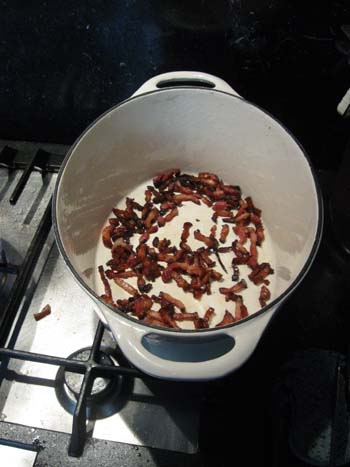
Next step was the beef, I had bought about 2 Kilos of Shin of beef, freely available in France and any decent butcher in Ireland should be able to save a bit from his mincer if begged in advance. This I cut into large pieces and then fried in the fat in which I had cooked the bacon, in about three batches, until crusty brown and then threw that also into the stewpot. (along with a large bunch of thyme from the garden)
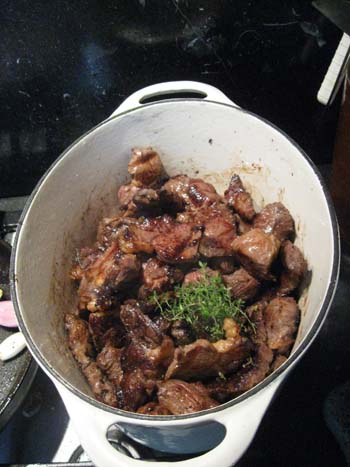
In my veg box I had loads of pink garlic and some shallots.
These got skinned, and the shallots divided into cloves and all browned in the pan along with some more of the duck fat .
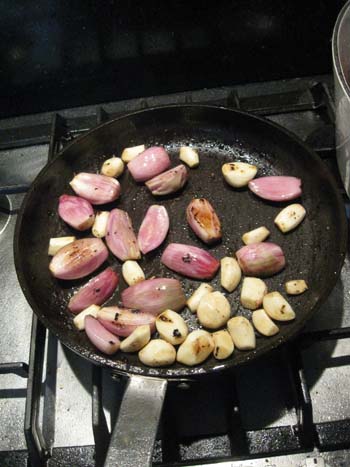
Then I chopped (not too small) three or four onions and three or four carrots and gave them the same treatment as the shallots and garlic
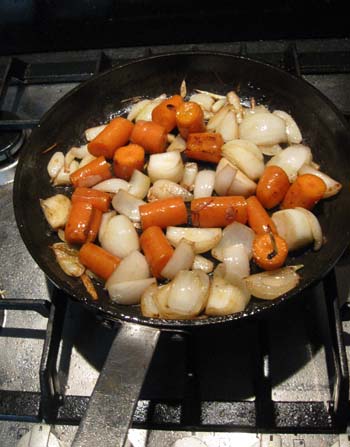
After they had joined the meat in the pot I poured about half a bottle of our local red into the pan and proceeded to boil it hard to reduce it to about half its volume.
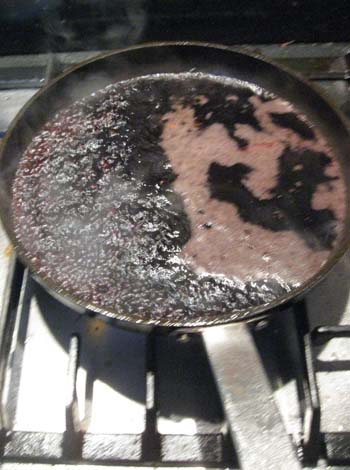
Then my eye was caught by a bowl of Oranges on the counter,
Ideal.
The Provencals love a little orange peel in their stews, in some went.
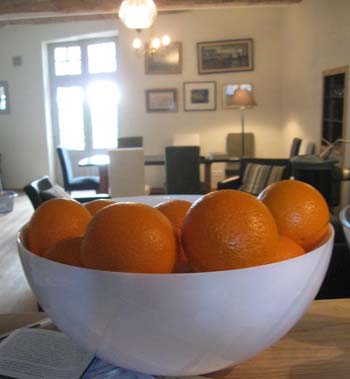
Sudden memory of a box of the yellow Ceps we had last week.
We hadn’t been able to finish them all so I had frozen a few after I had fried them.
(If you are not so lucky you could always fry up a few ordinary mushrooms and throw them in)
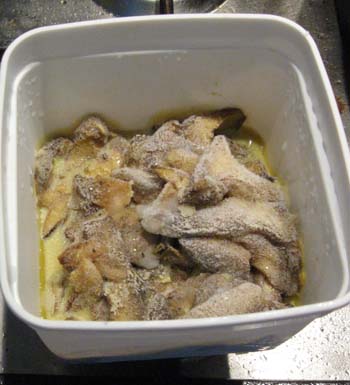
In they went, into the reducing wine along with the peel of the oranges and a few bay leaves
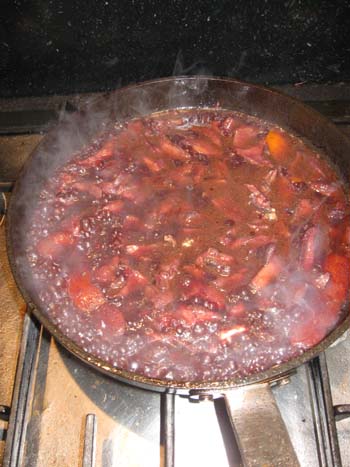
Once the wine was reduced I threw the contents of the pan into the stewpot.
I also poured in a pint of chicken stock left over from last night.
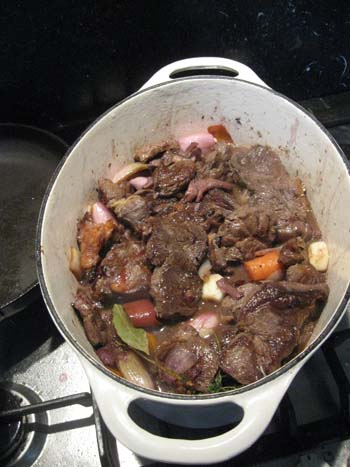
Now I am going to show you something never before shown in a cook book or a cookery demonstration but which all cooks see after they have put their masterpiece into the oven.
The wreck of the kitchen.
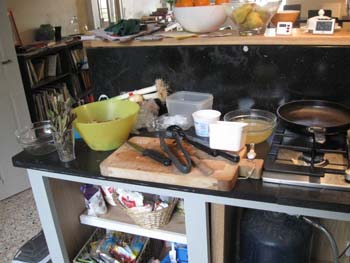
However all was clean and clear and three hours later I pulled this out of the oven
(I had cooked it very low, at about 150 C, just so it barely bubbled)
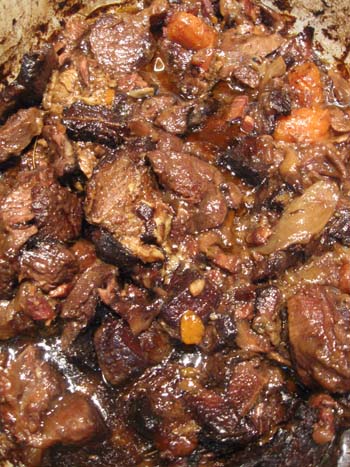
A wonderful pot of melting aromatic succulent beef and vegetables and, as there is enough here to feed eight, after the left overs are frozen tonight I should be in for same at least three times more.
6 comments
